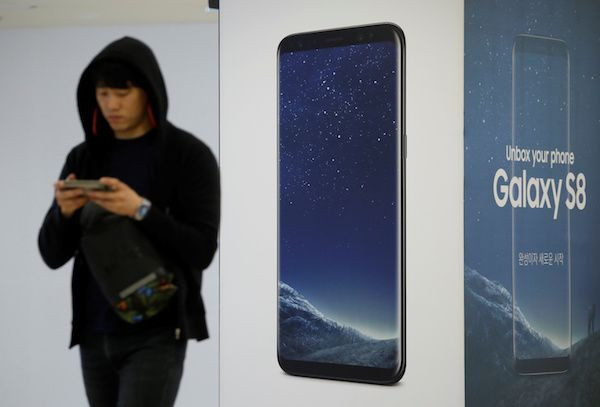Apple, Chinese Brands Beat Samsung’s China Q2 Sales Despite Galaxy S8 Release

Despite bringing its Galaxy S8 flagship phone to China, Samsung still failed to increase its sales in the country. Meanwhile, Apple managed to emerge as the top smartphone seller during the second quarter, with Chinese phone makers trailing behind.
On Wednesday, the Korea International Trade Association disclosed in a report that Samsung sold 48 million smartphones in China as of end-June. The not-so-impressive figure caused the South Korean tech giant to land the sixth place in the ranking of the primary smartphone brands in China. Compared to Samsung’s performance from the first quarter of 2016, it’s now down by two notches.
Korea Herald believes that the slump in Samsung’s sales could be due to the Chinese consumers’ preference for cheaper local brands than the high-end and premium devices from Samsung. But this could not be the only reason, knowing that Cupertino-headquartered rival Apple Inc. secured the top spot by selling 171 million iPhones in the second quarter.
Chinese brands Huawei, Oppo, Vivo and Xiaomi grabbed the second to fifth spots for the April to June quarterly period. Comparing the sales of these manufacturers from their previous performance in China, it’s easy to see how Oppo and Vivo gained better traction this year. While Huawei snagged the second place by selling 132 million phones, Oppo and Vivo trailed behind after selling 124 million and 108 million units, respectively. Xiaomi, on the other hand, sold 68 million handsets.
Based on The Korea International Trade Association’s report, around 63 percent of sold units account for low- and mid-range offerings from the main players in the second largest economy in the world. The report event pointed out that Oppo and Vivo particularly did well in the Chinese market because their smartphones offer more bang for the buck. Only 6.4 percent accounted for premium handsets and the majority of the sales here were thanks to Apple’s iPhone.
Another angle brought up by the report is how Samsung may have struggled to restore customer confidence this year after the fiasco the now defunct Galaxy Note 7 caused last year. The report indicated that only 7.2 percent of loyal Samsung consumers bought products from the South Korean company during the second quarter. This is, of course, quite low when compared to the percentages of other brands. For instance, about 53.4 percent of loyal Apple consumers purchased iPhones during the same period. On the other hand, Oppo and Vivo had 25-26 percent of loyal customers during the second quarter.
It can be noted that Samsung vowed to earn back the trust of its customers after announcing the worldwide recall of the problematic Note 7. At the time, the company’s mobile chief, Dong-jin Koh, deeply apologized to consumers and thanked those who stayed loyal despite what happened. He also promised back then they would work to restore the trust of consumers, so that they may use Samsung products without having to think of safety concerns, as per Mobile Syrup.
Last year’s fiasco may have really affected the view of the general Chinese consumers about Samsung’s smartphones. This is evident on how the company failed to see a significant increment in its sales despite launching the Galaxy S8 and Galaxy S8 Plus in China in May. Nevertheless, though Samsung obviously struggled to do well in China, it still remained to be the world’s no. 1 seller of smartphones in the second quarter, as pointed out by industry tracker Strategy Analytics.
© Copyright IBTimes 2025. All rights reserved.



















